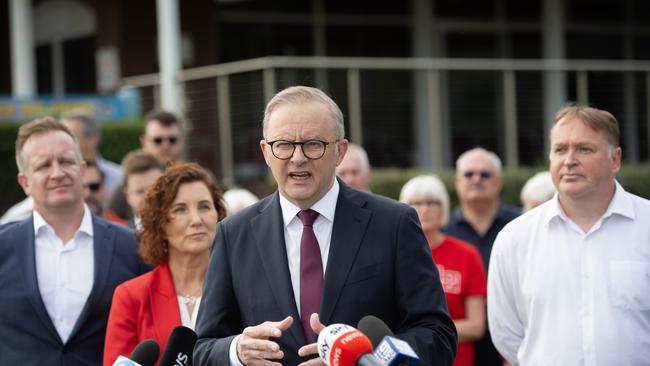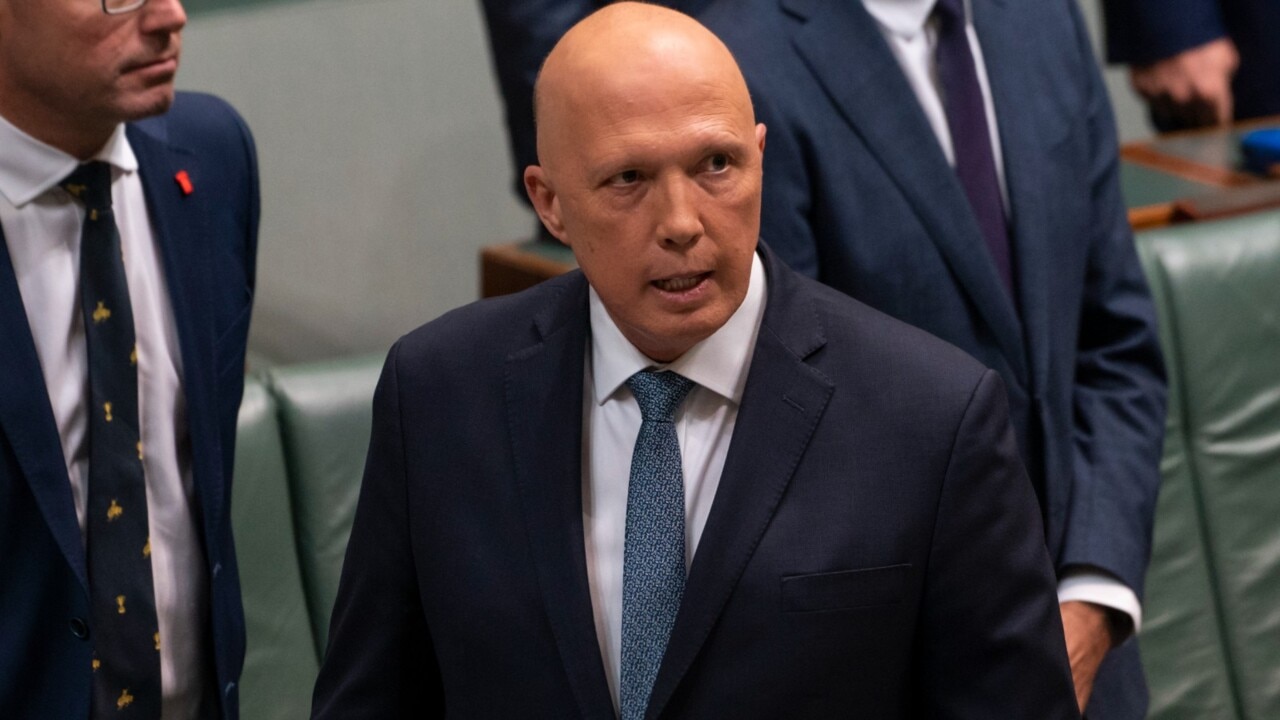Anthony Albanese says Peter Dutton must explain boycott’s impact on workers
Anthony Albanese has criticised Peter Dutton’s call for a boycott of Woolworths, accusing the Coalition leader of putting Australian jobs at risk and demanding he “explain whether boycott is forever or just until Australia Day”.

Anthony Albanese has criticised Peter Dutton’s call for a boycott of Woolworths, accusing the Coalition leader of putting Australian jobs at risk and demanding he explain whether the boycott is forever or just until Australia Day.
Mr Dutton’s attack on Woolworths for its decision to stop stocking extra Australia Day merchandise ahead of January 26 was followed by one of its Brisbane stores being vandalised on Monday, with the graffiti urging people to “boycott Woolies”.
The Prime Minister said the Coalition leader needed to explain what the impact of Woolworths’ employees would be in the wake of his call for a boycott.
“(Mr Dutton’s) big statement was to call for a boycott of Woolworths, as well as, I assume, Aldi and Kmart. They employ over 200,000 Australians,” Mr Albanese told the ABC. “He needs to explain whether that boycott is forever or whether it’s just until Australia Day and what the impact of those people who work for these companies will be.”
The Kmart Group, which also covers Target stores,– decided to stop stocking merchandise especially for Australia Day several years ago.
Aldi followed Woolworths in declaring last week it would also cease selling such products.
Labor, independents and some business leaders have criticised Mr Dutton’s call for a boycott, with many arguing the cost of people’s groceries needed to be the focus instead.

Mr Albanese and Treasurer Jim Chalmers met with Craig Emerson to discuss the scope of the former Labor minister’s inquiry into the supermarkets’ voluntary code of conduct and whether civil penalties should be introduced for breaching it.
Mr Albanese would not say if he believed supermarkets’ claim that they were only increasing their prices because of inflation, rather than profiteering.
“I think that there’s a discrepancy there, simple as that,” he said. “We need to look at the full range of measures that’s available. At the moment there’s a voluntary code of conduct, and one of the things that Dr Emerson will be looking at is whether that should be shifted into a more mandatory form. And in addition to that, Jim Chalmers is having discussions with the Australian Competition and Consumer Commission about other measures that could be considered.”








To join the conversation, please log in. Don't have an account? Register
Join the conversation, you are commenting as Logout